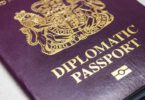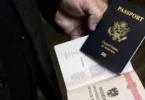Canada is known for its inclusive immigration policies and commitment to family reunification. If you are married to a Canadian citizen or permanent resident and wish to join your spouse in Canada, a marriage visa—also known as a spouse or partner visa—may be the key to your new life in Canada. This article provides an overview of the marriage visa process, requirements, and steps for a successful application.
What is a Marriage Visa?
A marriage visa to Canada allows foreign nationals who are married to Canadian citizens or permanent residents to immigrate and live in Canada. There are two main pathways through which a marriage visa can be granted:
- Spouse or Common-Law Partner Sponsorship: This is the most common route for married couples where one partner is Canadian. The Canadian citizen or permanent resident (the sponsor) applies to sponsor their spouse to live with them in Canada.
- Temporary Resident Visa (TRV) for Spouses: In some cases, individuals may be granted a temporary visa to visit their spouse while the permanent residence application is processed.
Types of Marriage Visas
- Outland Spousal Sponsorship:
- This is applicable when the couple is living outside Canada. The Canadian sponsor applies to sponsor their spouse from abroad. The application is processed through the Canadian visa office in the applicant’s home country.
- This option allows the foreign spouse to stay in their home country while the application is being processed. Once the visa is approved, the spouse can enter Canada and become a permanent resident.
- Inland Spousal Sponsorship:
- This is for couples already living together in Canada. The foreign spouse can apply for permanent residency while living in Canada on a temporary visa. They may be able to work and study while the application is being processed.
- The advantage of inland sponsorship is that it allows the spouse to remain in Canada while waiting for a decision. However, this process may take longer than the outland route.
Requirements for a Spouse Visa
To qualify for a marriage visa to Canada, there are several requirements that both the sponsor and the applicant must meet:
- Eligibility of the Sponsor:
- The sponsor must be a Canadian citizen or permanent resident.
- The sponsor must be at least 18 years old and prove they are financially capable of supporting their spouse, ensuring they will not need to rely on social assistance.
- The sponsor cannot be in default of a previous sponsorship agreement, cannot be convicted of violent crimes, or be involved in any other serious criminal offences.
- Eligibility of the Applicant:
- The applicant must be legally married to the Canadian sponsor (common-law partnerships are also eligible under similar rules).
- The applicant must provide evidence of the authenticity of the marriage, including documents such as a marriage certificate, communication history, joint financial documents, and photographs of the couple together.
- If the couple has been living together for less than two years, additional evidence may be required to prove the genuineness of the relationship.
- Medical and Criminal Background Checks:
- Both the sponsor and the applicant will undergo medical examinations by an approved physician to ensure they do not have any health conditions that could pose a risk to public health in Canada.
- Criminal background checks are also mandatory to ensure the applicant does not have a history of criminal activity.
Common Fees and Cost
The fees associated with the spousal sponsorship process for a marriage visa to Canada are as follows:
- Sponsorship Fee
- Fee: $75 CAD
- This fee is paid by the sponsor to cover the cost of processing the sponsorship application.
- Permanent Residence Fee
- Fee: $500 CAD
- This fee is for the applicant’s permanent residence application. It must be paid when applying. However, the fee is refundable if the application is denied.
- Right of Permanent Residence Fee
- Fee: $515 CAD
- This fee is for applicants who are being granted permanent residence in Canada. It is not required until the application is approved, and it must be paid before the applicant becomes a permanent resident. It is non-refundable.
- Biometrics Fee (if applicable)
- Fee: $85 CAD per person (for applicants aged 14 to 79)
- Biometrics fees are required for most applicants, including spouses, when they are required to provide fingerprints and a photo as part of the application process. This applies to both outland and inland applications.
For families applying together, the biometrics fee applies to each applicant, including children aged 14 to 79.
- Application Fees for Temporary Resident Visa (if applicable)
- Fee: $100 CAD (for those applying for a Temporary Resident Visa (TRV) while waiting for permanent residency approval).
- This fee is for applicants who wish to enter Canada temporarily while their spousal sponsorship is being processed.
- Other Possible Fees
- Medical Exam Fees: Fees for medical examinations vary depending on the country and the clinic. Typically, they range from $100 to $500 CAD per person.
- Police Certificates Fees: The cost for obtaining police certificates varies by country. This fee is usually determined by the local police authority or government agency.
Summary of Common Fees
| Fee Type | Amount (CAD) |
| Sponsorship Fee | $75 |
| Permanent Residence Fee | $500 |
| Right of Permanent Residence Fee | $515 |
| Biometrics Fee (per person) | $85 |
| Application for Temporary Resident Visa | $100 |
| Medical Exam Fees | $100–$500 |
| Police Certificate Fees | Varies |
Process of Applying for a Marriage Visa
- Step 1: Gather Documents:
- The sponsor and applicant must gather various documents, including proof of marriage, financial support, identity documents, medical records, and police certificates. It’s crucial to provide complete and accurate documentation to avoid delays.
- Step 2: Submit the Application:
- The Canadian sponsor submits the application for spousal sponsorship. This includes both the sponsorship form and the permanent residence application for the spouse. The processing time can vary, but typically it takes around 12-24 months for approval.
- Step 3: Wait for Processing:
- After submitting the application, it will be reviewed by Immigration, Refugees and Citizenship Canada (IRCC). This process involves background checks, medical exams, and the verification of documents.
- If the application is incomplete or if additional information is required, the processing time may increase.
- Step 4: Approval and Landing:
- Once the application is approved, the foreign spouse will be granted permanent residency in Canada. They will need to attend an immigration interview (if required) and may be issued a permanent resident visa to enter Canada.
- Step 5: Permanent Residency and Citizenship:
- After arriving in Canada, the spouse will receive their permanent residency card. They can live, work, and study in Canada as a permanent resident. After meeting the residency requirements, the spouse can apply for Canadian citizenship.
Common Challenges
- Delayed Processing: Marriage visa applications can sometimes be delayed due to missing documents, errors in the application, or background checks. It’s important to ensure all required information is provided at the outset.
- Proof of Genuine Relationship: One of the most common reasons for refusals is the failure to provide sufficient evidence that the relationship is genuine. Couples should provide as much documentation as possible, including joint financial statements, proof of communication, and photographs.
- Fraudulent Marriages: Immigration authorities are wary of fraudulent marriages intended solely for immigration purposes. If a marriage is found to be inauthentic, the application may be rejected, and the individuals involved may face legal consequences.
Refusal and Appeal
- Refusal: Applications can be refused if the applicant does not meet the eligibility criteria, such as failing to prove the authenticity of the relationship or having a criminal record. In such cases, applicants may appeal the decision to the Immigration Appeal Division (IAD) of the Immigration and Refugee Board of Canada (IRB).
- Appeals: If the sponsor is not satisfied with a decision, they can appeal to the IAD, which will review the decision based on the merits of the case. It is important to have strong evidence to support the appeal.
Conclusion
Marriage visas to Canada offer a valuable opportunity for spouses of Canadian citizens or permanent residents to reunite and build a life together in Canada. While the application process can be lengthy and complex, understanding the requirements and following the proper steps can increase the likelihood of a successful application. Whether you’re pursuing the outland or inland route, ensure that all documents are accurate and provide compelling evidence of your genuine relationship for the best chance of approval.





